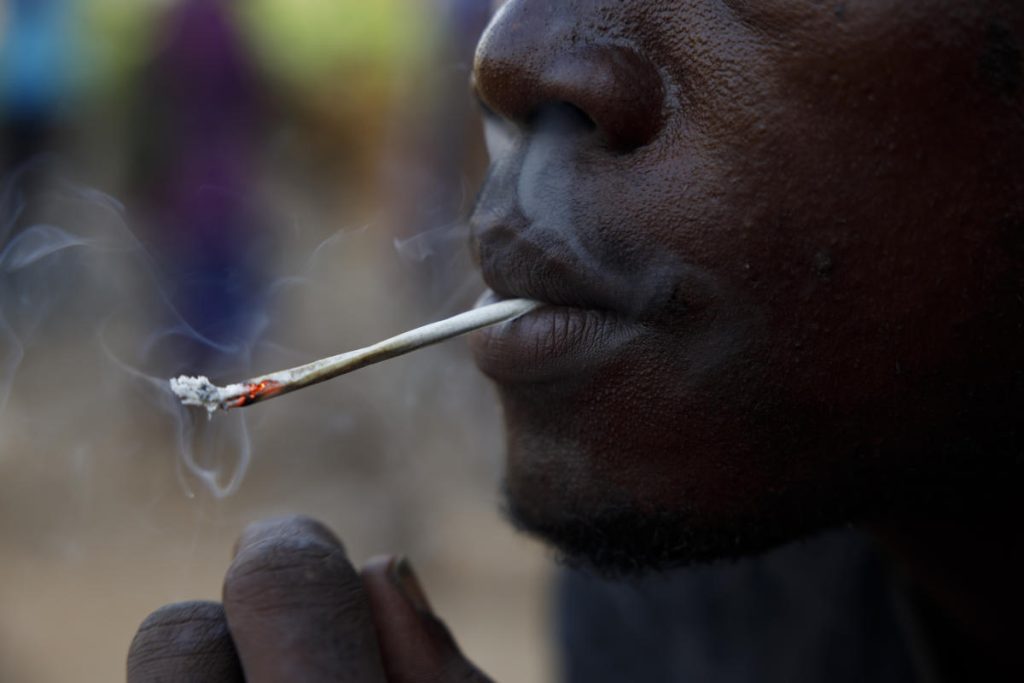In Freetown, Sierra Leone, a synthetic drug known as kush is causing havoc among the youth population. Garbage-filled streets are littered with young men and boys addicted to the drug, and access to healthcare services is limited. In response, a community in the Bombay suburb of Freetown has established a makeshift treatment center run by volunteers. Harsh measures, such as locking individuals in rooms or chaining them to prevent escape, are sometimes used to help them overcome their addiction. Despite the challenging conditions, the project has successfully treated dozens of individuals struggling with kush addiction.
Sierra Leone’s President, Julius Maada Bio, has declared kush a national epidemic and a major threat. He has launched a task force on drug and substance abuse to address the issue through prevention and treatment strategies involving both law enforcement and community engagement. The exact composition of kush, which often contains a mix of cannabis, synthetic drugs like fentanyl and tramadol, and chemicals like formaldehyde, poses a challenge for interventions as its ingredients can vary. The drug leaves users lethargic, desperate, and physically ill, with many seeking treatment at the country’s only psychiatric hospital.
The impact of kush addiction in Sierra Leone is far-reaching, leading to a rise in dropouts from educational institutions, multiple organ failures, involvement in criminal activities, and social disintegration within families and communities. The director of the West Africa Drug Policy Network describes Sierra Leone as the worst-hit country in the region, with kush tearing apart every community. Efforts by nonprofit organizations, such as the Social Linkages For Youth Development And Child Link, aim to educate young people about the dangers of drug use and addiction by sharing personal stories of recovery. These organizations have long advocated for increased government resources to combat addiction.
Former kush users who have successfully overcome their addiction play a vital role in educating others about the dangers of the drug. Peer educators like Ephraim Macaulay, who struggled with addiction during his college years, share their experiences to encourage young people to make healthier choices. The availability of locally manufactured kush has contributed to the exponential growth of the drug’s presence in Sierra Leone. Advocates stress the importance of targeting manufacturers at the top of the supply chain to effectively address the issue, rather than focusing solely on individual users or low-level sellers.
Parents like Memunatu Kamara, whose son dropped out of school and turned to theft to support his kush addiction, express their despair and frustration at the devastating impact the drug has had on their families. For many, watching a loved one succumb to addiction is a painful and overwhelming experience, leading to feelings of shame, discouragement, and helplessness. By sharing their stories and advocating for more comprehensive approaches to combatting kush addiction, individuals and communities in Sierra Leone hope to prevent further harm and create a brighter future for the next generation.


